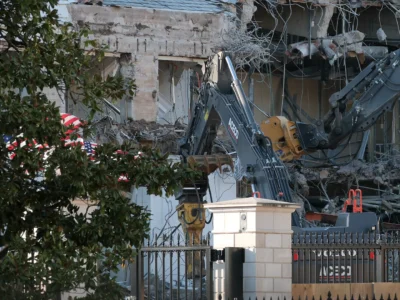Is a Pandemic a Major Disaster?
Cuomo has asked for major disaster relief. But there’s a serious legal hurdle to that.
Yesterday, I wrote about presidential powers in a pandemic. I mentioned the possibility of declaring the pandemic a major disaster under the Stafford Act. Today, we learned that Gov. Cuomo of New York has made such a request. [Note: two days after this was written, FEMA granted the request.] What does the law have to say about that?
Let me begin by recapping why this matters.
Trump has already invoked the emergency provisions of the Stafford Act. The Stafford Act, which is mostly administered by FEMA, covers federal responses for two categories of events: major disasters and national emergencies. As the Congressional Research Service (CRS) has explained, declaring a major disaster unlocks greater powers than declaring a national emergency under this Act. In contrast, CRS says a national emergency “would not authorize grants, unemployment assistance, food coupons, crisis counseling assistance and training, or community disaster loans as would be available through a major disaster declaration.” You can see why Cuomo wants the broader assistance provided by declaring a major disaster.
The legal issue is whether the definition of major disaster can include a pandemic. The statute defines a major disaster as “any natural catastrophe” that the President thinks is bad enough to require federal assistance to supplement the efforts of states, local governments, and disaster relief organizations. But is a pandemic a “natural catastrophe”?
You could probably argue that either way if that was all the statute had on to say. But there’s additional language saying that natural catastrophes include “any hurricane, tornado, storm, high water, winddriven water, tidal wave, tsunami, earthquake, volcanic eruption, landslide, mudslide, snowstorm, or drought.” The statute goes on to say that floods, and explosions are also covered, regardless of cause.
This long list of examples makes it pretty clear that what Congress had in mind were large-scale physical events like hurricanes and explosions. A disease may be natural and it may be a catastrophe, but it’s a biological rather than physical threat. So the thrust of the language seems to be that the statute addresses something very different than diseases.
On the other hand, the statute isn’t completely unambiguous. It says that natural catastrophes “include” all of those events, which suggests that other things might be covered as well. Mirriam-Webster ’s first definition of catastrophe is “a momentous tragic event ranging from extreme misfortune to utter overthrow or ruin.” That fits the coronavirus. However, the third definition is a “violent and sudden change in a feature of the earth” or “ a violent usually destructive natural event (such as a supernova).” With the exception of droughts (which are physical but not violent), the statutory examples are all closer to the that third definition, which doesn’t seem to cover the coronavirus.
You can see that the President would face a real legal hurdle in declaring the coronavirus to be a major disaster. Standing back from the immediate situation, I think my judgment as a lawyer would be that the definition doesn’t fit, although I would do my best to come up with an argument the other way.
Whatever Trump decides, he probably has the final word. Congress will probably applaud the decision to extend major disaster relief. The courts are unlikely to interfere. It’s hard to see how anyone would have standing to bring a lawsuit. Courts are also super-deferential to the president in emergency situations.
From a legal point of view, the best way to go forward would be for Trump to ask Congress for authority to use FEMA. At the same time, he could ask for money to expand FEMA, so that addressing the pandemic doesn’t leave FEMA without the resources to deal with the more usual kinds of disasters. Congress would presumably respond quickly. But Trump may well decide to just forge ahead on his own.
Reader Comments
One Reply to “Is a Pandemic a Major Disaster?”
Comments are closed.







Let me suggest that PAPA is in play. See the following: On December 19, 2006, the Pandemic and All-Hazards Preparedness Act (PAHPA), Public Law No. … The purpose of the Pandemic and All-Hazards Preparedness Act is “to improve the Nation’s public health and medical preparedness and response capabilities for emergencies, whether deliberate, accidental, or natural.” Unless you also considered this and I missed the cite.